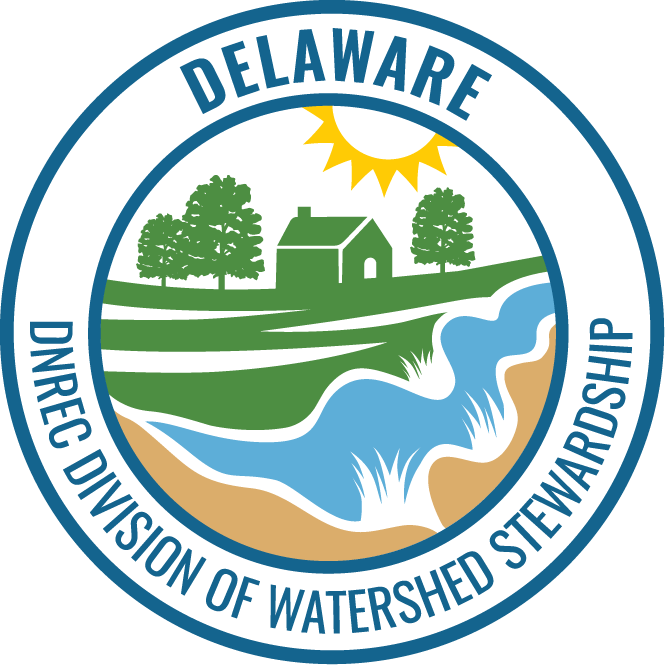
Facebook Twitter Instagram YouTube
Written on: September 24th, 2025 in Natural Resources, Wetland Research
By Alison Rogerson, DNREC’s Wetland Monitoring and Assessment Program Introducing Tidal Freshwater Most people are familiar with tidal wetlands that line the Delaware Bay coast and the Inland Bays. Likewise, most of us can recognize a freshwater wetland along a stream or in a forest. But what about tidal freshwater wetlands? That’s not a typo. […]
Written on: July 26th, 2023 in Natural Resources, Wetland Animals
By Alison Rogerson, DNREC’s Wetland Monitoring and Assessment Program Summer means warm weather (ok hot), spending more time outside, exploring the woods, wading in streams, and fishing. This makes it more likely that you will encounter one of Delaware’s 14 species of turtles! Safe to say that there is a turtle in every type of […]
Written on: July 26th, 2023 in Natural Resources, Wetland Restoration
By Brigham Whitman, Delaware Wild Lands Taylors Bridge in southern New Castle County perfectly characterizes Delaware’s coastal flood plain: a mosaic of agricultural fields interspersed with patches of upland hardwood forest and the occasional residential development, surrounded by the waters of the Delaware Bay with fingers of marsh snaking throughout the adjacent low-lying areas. Aside […]
Written on: March 24th, 2023 in Education and Outreach, Wetland Animals
By Olivia Allread, DNREC’s Wetland Monitoring and Assessment Program Ah, the start of spring. We all have our own personal odes to season. Many of us wait for that 70-degree day, some prepare gardens for planting, while others set the date to do that annual “cleaning” and get the dust off their ceiling fan blades. […]
Written on: December 19th, 2022 in Wetland Animals, Wetland Assessments
By Brittney Flatten, DNREC’s Watershed Assessment and Management Section For the past year, I’ve been working with another DNREC scientist to document submerged aquatic vegetation (SAV) in Delaware’s streams, ponds, and bays to get a better understanding of where these plants like to grow and how we can protect them. I had previously observed some […]
Written on: December 19th, 2022 in Education and Outreach
By Olivia Allread, DNREC’s Wetland Monitoring and Assessment Program Ah, yes. The terrestrial ecosystem of bland, brown stuff. The innocuousness of peat may look like just any run of the mill soil, but this dirt is way beyond your average stuck under the nail type. Peat, Peatlands, and Wetlands First things first. Peat soil, or […]
Written on: December 19th, 2022 in Wetland Assessments
By Alison Rogerson, DNREC’s Wetland Monitoring and Assessment Program In this sixth and final installment in my Wetland Status and Trends blog series, I’m wrapping it all up with management recommendations. We came, we mapped, we calculated, we reported, now what? What comes next for wetland management and conservation in Delaware based on this project? […]
Written on: May 25th, 2022 in Wetland Assessments, Wetland Restoration
By Erin Dorset, DNREC’s Division of Fish and Wildlife The Inland Bays are a beautiful and beloved part of Delaware, containing about 20% of the state’s wetlands. Those wetlands are important economically, culturally, and ecologically, as they improve water quality, support commercial and recreational fisheries, support tourism, absorb flood waters, and provide crucial feeding and […]
Written on: September 17th, 2020 in Wetland Assessments
By Erin Dorset, DNREC’s Wetland Monitoring and Assessment Program Most of our wetland assessments throughout the years have been in central and southern Delaware, but in the summer of 2017, our Wetland Monitoring and Assessment crew went north to perform wetland condition assessments at 116 wetlands in the Red Lion watershed. From protocol updates to […]
Written on: December 10th, 2019 in Wetland Restoration
Riparian buffers are planted areas specifically next to waterways, such as streams, ponds, wetlands, and rivers. These areas are extremely important to keeping our waters healthy. They do so by filtering and trapping nutrients and sediment out of waters before they enter our local waterways.